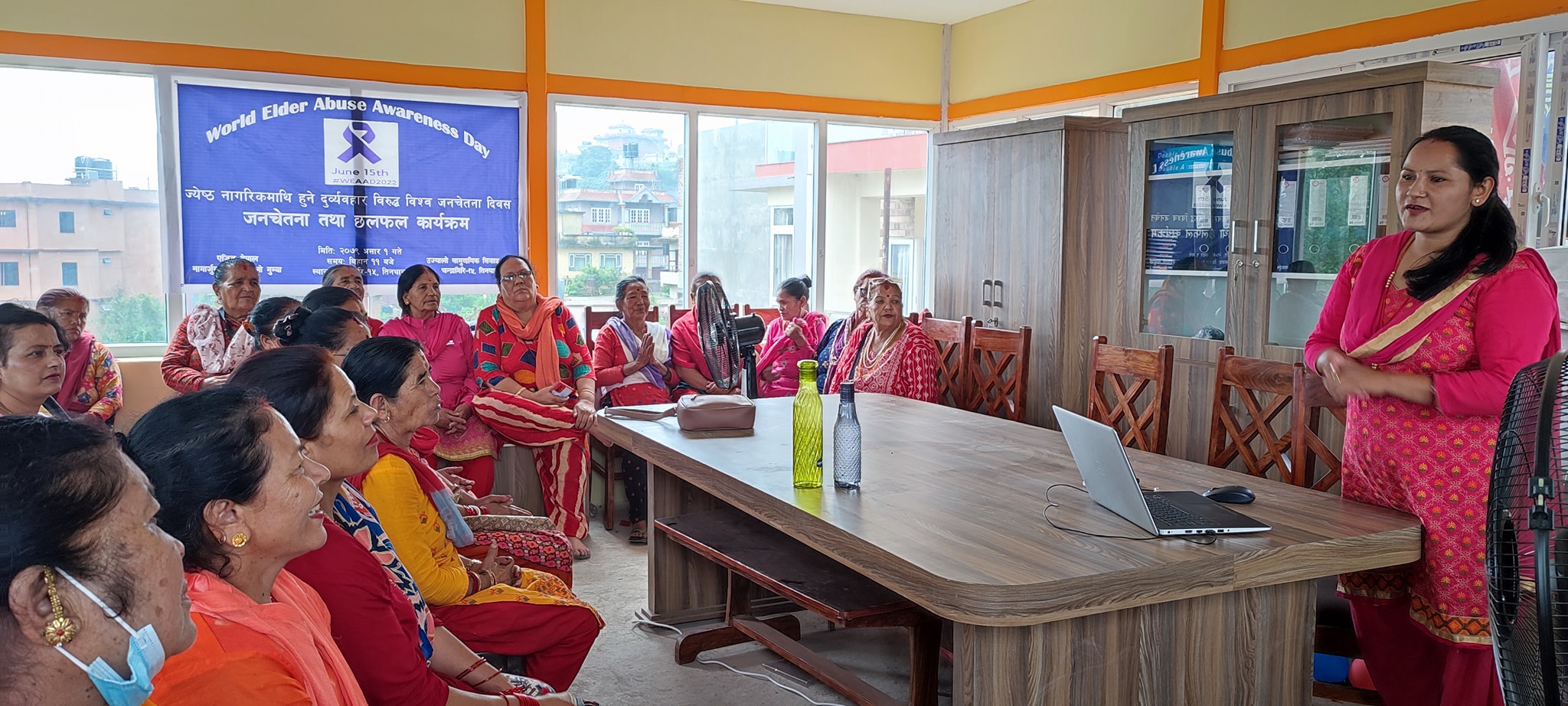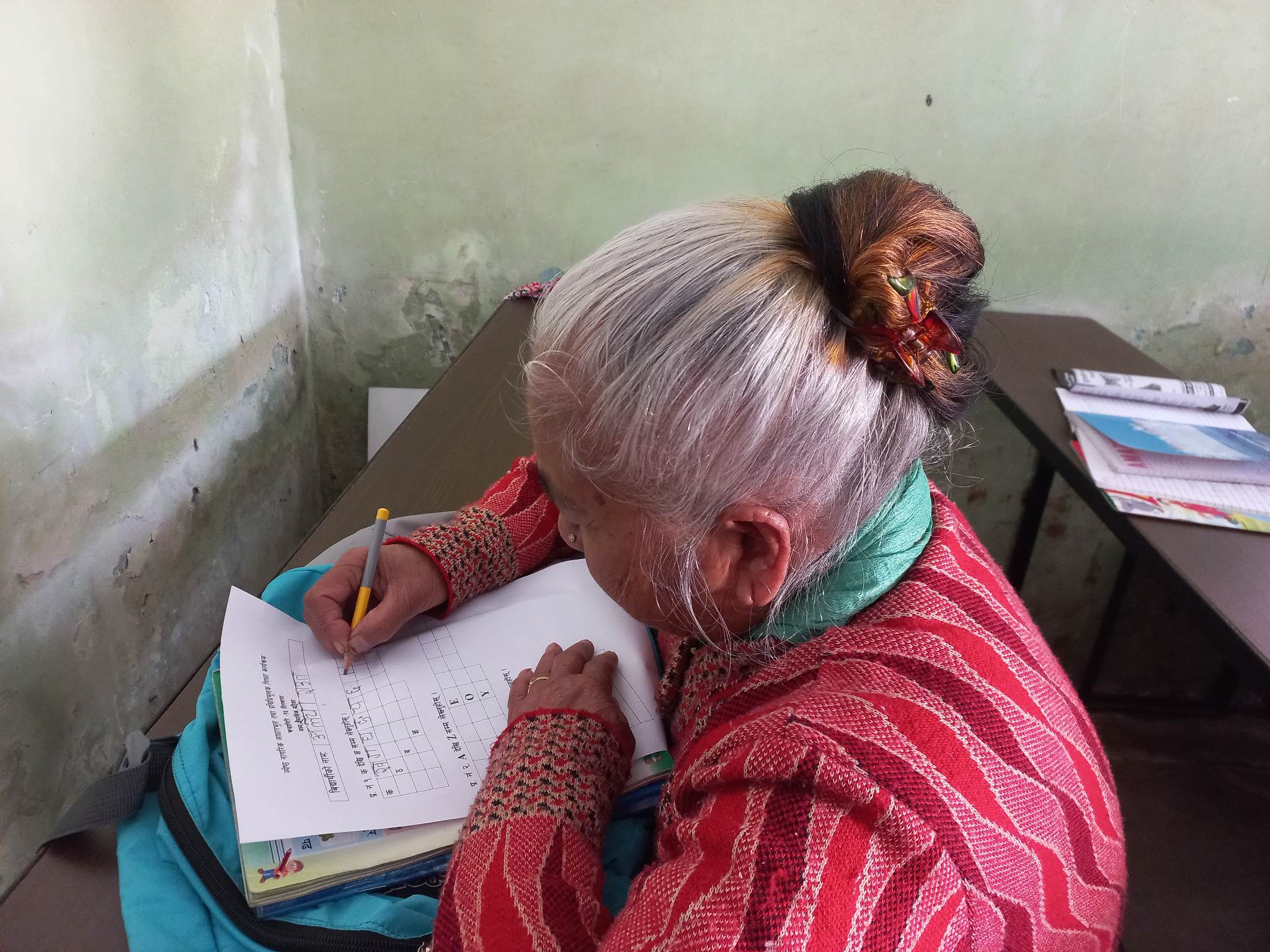Ageing Nepal is a nonprofit organization in Nepal founded in 2011 by a group of Nepali social workers. Ageing Nepal aims to support healthy aging through advocacy, research, and training sessions with health professionals and caregivers in geriatrics and gerontology. To learn more about their efforts, AARP spoke with Sanju Thapa Magar, CEO of Ageing Nepal.
Download Interview
AARP What are the major challenges that older people in Nepal face? How does Ageing Nepal address those challenges?
Sanju Thapa Magar In Nepal, poverty, poor health conditions, and illiteracy are the major challenges that older people face. Here, 85 percent of older people live in rural areas. Most of the older people in rural areas depend on agriculture, which does not pay enough for their basic needs. Also, no platform exists to support older people who want to engage in income-generating activities even if they are capable and healthy. The Government of Nepal provides contributory and noncontributory (old age allowance) pensions to older people. Only 7 percent of older people have worked as government service providers to be eligible for the contributory pension. People ages 70 and older receive 4000 Nepalese Rupees (NRS) per month which is equivalent to 40 USD, as a noncontributory pension.
The government has implemented some initiatives to improve the health and well-being of older persons, but those initiatives are not adequate.
There are only nine geriatricians, six geriatric nurses, and one physiotherapist in the whole country. So, it is hard to receive quality geriatric health services. Because of the social taboos surrounding girls’ education, limited access to academic institutions before the 1960s, and other social taboos, around 90 percent of older women in Nepal cannot read. They are struggling to adjust in this digitizing society even for normal living.
Ageing Nepal has been continually working to mitigate these challenges. Advocacy and campaigning are the major activities of Ageing Nepal. We conduct health camps, train health personnel (caregivers and nurses), influence government and stakeholders on cross-cutting issues of older persons, and conduct a Basic Literacy Class for Older Persons. As a result of our ongoing initiatives with the government and other organizations, the government is now developing new policies and programs for the betterment of older persons.
AARP How does Ageing Nepal define success? Which of Ageing Nepal’s projects have been most successful? What challenges has the organization faced during project implementation?
 SM Success is providing dignified old age for all. The Basic Literacy Class for Older Persons is Ageing Nepal’s most successful project. It was the first project that addressed illiteracy among older persons in Nepal. Because of this project, Ageing Nepal was awarded the UNESCO King Sejong Literacy Prize 2020.
SM Success is providing dignified old age for all. The Basic Literacy Class for Older Persons is Ageing Nepal’s most successful project. It was the first project that addressed illiteracy among older persons in Nepal. Because of this project, Ageing Nepal was awarded the UNESCO King Sejong Literacy Prize 2020.
Ageing Nepal faced many challenges from the beginning of the project implementation. First, it was hard to convince older people and their families to attend class. Some believe older people cannot and need not learn new skills. So, we had to struggle to break the taboos. Second, health may deteriorate with age. At the same time, older persons may have responsibilities, such as family care, that made it difficult for them to attend class. Third, we had to create a textbook and a teacher's guidebook.
AARP How does Ageing Nepal collaborate with government or other NGOs to accomplish its goals?
SM Ageing Nepal is a member of the Stop TB Partnership, the Global Alliance for Rights of Older Persons (GAROP), and the Global Call to Action Against Poverty. It is also a special consultative member of ECOSOC; a voting member of CIVICUS, a global alliance of civil society organizations and activists; and a network partner of the International Federation on Ageing and HelpAge International. Ageing Nepal informs the Nepal government, meets with concerned authorities, submits petitions, and encourages the government to call a meeting of the national organization on the concerning issues.
Ageing Nepal never misses the opportunity to collaborate with government and nongovernment (national and international) organizations.
 AARP Has Ageing Nepal participated in any international collaborations to promote older persons’ rights? What have those collaborations looked like?
AARP Has Ageing Nepal participated in any international collaborations to promote older persons’ rights? What have those collaborations looked like?
SM Yes, Ageing Nepal has collaborated with many international organizations to promote older persons’ rights. It observes international days of importance (International Day of Older Persons, World Elder Abuse Awareness Day, Universal Health Coverage Day, International Women’s Day, and many more) to promote the rights of older persons in collaboration with national and international organizations. I serve as a steering group member of GAROP. GAROP supports promoting the rights of older persons and contributes to calling for the UN Convention for the rights of older persons.
Most organizations help technically by providing the toolkits and guidelines for the campaign to promote the rights of older persons, whereas some provide financial support for the implementation of projects and participate in international conferences and workshops. We often get chances to learn new approaches in the aging field. Similarly, it also helps us mainstream the issues of Nepal’s older persons in national and international platforms.
AARP How does Ageing Nepal help create intergenerational connections?
SM Ageing Nepal conducts projects to create intergenerational connections. For instance, inJuly 2022, Ageing Nepal, in collaboration with local government, conducted an orientation for older people and youth. The three-day program focused on issues facing older persons and the need to create intergenerational connections between young and old for sustainable development.
AARP How has the COVID-19 pandemic affected your work?
SM The COVID-19 pandemic mostly hit our Basic Literacy Class for Older Persons that we initiated in different communities of Kathmandu and were continued by concerned local governments and other local organizations. The classes were canceled because of the pandemic.
The pandemic also negatively affected our research. We started three research projects before the pandemic that were prolonged for more than a year. Similarly, implementation of some of our projects was also delayed.
We were also hit financially, which made it difficult to maintain the organization.
AARP Could you share more details about Ageing Nepal’s literacy classes and health care support programs?
SM So far, our Basic Literacy Class for Older Persons has benefited around 250 older people, enabling them to read and write in simple English and Nepali languages and to use electronic devices like mobile phones and home appliances. However, most older people still cannot read. We aim to build a nation where literacy and lifelong learning opportunities are equally accessible to older persons.
Ageing Nepal was the first organization in the country to start caregiver and nurse training for geriatric care. We have conducted two caregiver trainings and one nurse training so far. We plan to conduct at least one training for each group annually, which has not been possible because of a lack of financial support.
Fore more information, visit: https://ageingnepal.org/